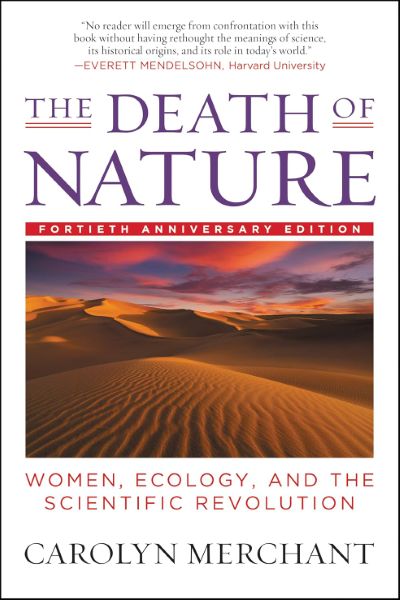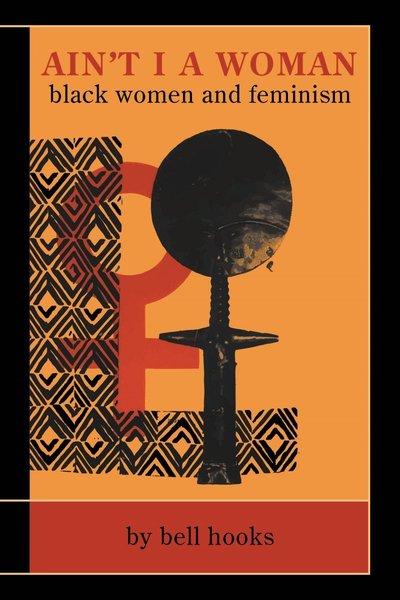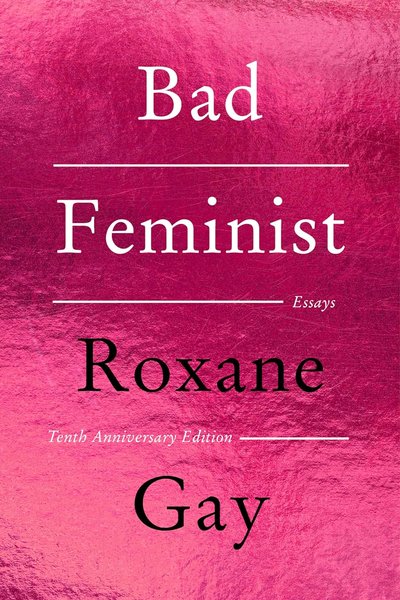The Death of Nature: Women, Ecology and the Scientific Revolution
A groundbreaking work of ecofeminist scholarship that examines how the Scientific Revolution transformed Western culture's understanding of nature from a living, nurturing organism to a dead, mechanical object to be exploited. Merchant reveals the intimate connection between the domination of women and the domination of nature.

📝 Book Review
“The Death of Nature: Women, Ecology and the Scientific Revolution” stands as a foundational text in the fields of environmental history, ecofeminist theory, and the critique of modern science. Published in 1980, Carolyn Merchant’s groundbreaking work fundamentally challenged how we understand the relationship between scientific progress, gender relations, and environmental destruction, establishing new frameworks for analyzing the interconnected domination of women and nature.
Carolyn Merchant, a distinguished historian and philosopher of science at the University of California, Berkeley, brought a unique interdisciplinary approach to this seminal work. As one of the pioneering scholars in environmental history and ecofeminist theory, Merchant’s academic journey spans multiple fields including history of science, environmental studies, and feminist theory. Her scholarly background equipped her with the analytical tools to examine the Scientific Revolution not merely as a progression of ideas, but as a profound transformation of worldview that fundamentally altered humanity’s relationship with both nature and gender.
Merchant’s methodology represents a revolutionary approach to historical analysis, combining rigorous historical research with feminist and ecological consciousness. She drew upon extensive primary sources from the Scientific Revolution period, examining the writings of key figures like Francis Bacon, René Descartes, and Isaac Newton, while simultaneously analyzing cultural texts, legal documents, and popular literature of the era. This comprehensive approach allowed her to trace not only the evolution of scientific ideas but also their broader cultural implications and their intimate connection to changing gender relations.
The Central Thesis: From Organism to Machine
The heart of Merchant’s argument lies in her analysis of a fundamental conceptual transformation that occurred during the Scientific Revolution of the 16th and 17th centuries. She demonstrates how Western culture’s understanding of nature underwent a radical metamorphosis from viewing the natural world as a living, nurturing organism to reconceptualizing it as a dead, mechanical object suitable for domination and exploitation.
In pre-Scientific Revolution Europe, nature was predominantly understood through organic metaphors. The Earth was conceived as a living being, often personified as a nurturing mother who provided sustenance and care for all her children. This worldview, which Merchant terms the “organic worldview,” carried with it inherent ethical constraints against the violent exploitation of the natural world. The image of Earth as mother created cultural taboos against mining, extensive agriculture, and other activities that could be seen as violating or harming the maternal body of nature.
The Scientific Revolution systematically dismantled this organic worldview, replacing it with a mechanistic understanding that viewed nature as a machine composed of discrete, manipulable parts. This transformation was not merely intellectual but profoundly cultural and ideological. The new mechanistic worldview stripped nature of its organic vitality, its capacity for self-regulation, and its inherent value, rendering it instead as passive matter suitable for human domination and control.
The Gendered Dimensions of Scientific Knowledge
One of Merchant’s most significant contributions lies in her analysis of how this conceptual transformation was deeply gendered. She demonstrates that the language and metaphors employed by key Scientific Revolution figures were saturated with gendered imagery that explicitly connected the domination of nature with the domination of women.
Francis Bacon, often celebrated as a founding father of modern experimental science, employed remarkably violent and sexualized language when describing the relationship between science and nature. Bacon wrote of “torturing nature’s secrets from her,” of the scientist’s need to “bind her to your service and make her your slave,” and of the importance of “penetrating” nature’s hidden mysteries. This language reveals how the new scientific method was conceived through metaphors of sexual domination and violence against feminized nature.
Merchant’s analysis reveals that these were not merely colorful metaphors but reflected deeper ideological connections between emerging scientific methodology and patriarchal social relations. The same period that witnessed the rise of mechanistic science also saw intensified persecution of women accused of witchcraft, the erosion of women’s traditional roles in healing and midwifery, and the strengthening of patriarchal legal and social structures. The witch trials, Merchant argues, were not separate from the Scientific Revolution but intimately connected to it, representing the violent suppression of alternative ways of knowing associated with women and folk wisdom.
The Intersection of Gender and Nature
Merchant’s work pioneered the analysis of what would later be termed “ecofeminism” by demonstrating the parallel and interconnected oppression of women and nature under emerging capitalist and patriarchal systems. She shows how both women and nature were reconceptualized during this period as passive resources available for exploitation by rational, masculine subjects.
The transformation of women’s roles in society paralleled the transformation of humanity’s relationship with nature. Just as nature was stripped of its agency and reduced to passive matter, women were increasingly confined to domestic spheres and denied active participation in public life, science, and economic production. The same mechanical thinking that rendered nature as a machine also increasingly viewed women’s bodies as machines for reproduction and domestic labor.
This parallel oppression was not coincidental but structurally interconnected. The mechanistic worldview that justified the exploitation of nature also provided the ideological framework for justifying women’s subordination. Both women and nature were positioned as closer to the material, bodily realm that the new science sought to transcend and control through rational, masculine authority.
Environmental and Economic Implications
Merchant’s analysis extends beyond gender relations to examine the environmental and economic consequences of this worldview transformation. She demonstrates how the mechanistic conception of nature provided the ideological foundation for increasingly intensive forms of environmental exploitation that emerged alongside early capitalism.
The organic worldview had imposed certain constraints on environmental exploitation through its conception of nature as a living, sacred entity deserving of respect and care. The mechanistic worldview removed these constraints by reconceptualizing nature as dead matter available for unlimited human manipulation. This ideological shift enabled and justified the environmental destruction that accompanied the rise of industrial capitalism.
Merchant traces how this transformation manifested in concrete practices such as mining, deforestation, and intensive agriculture. The mechanistic worldview made it possible to conceive of these activities not as violations of a sacred natural order but as rational human improvement of passive, worthless matter. This shift in consciousness was essential for the development of capitalist modes of production that treated natural resources as commodities to be extracted and exploited for profit.
The Role of Language and Metaphor
Throughout her analysis, Merchant pays particular attention to the role of language and metaphor in shaping consciousness and social relations. She demonstrates how the metaphorical language used to describe nature, science, and gender relations was not merely decorative but actively constituted new forms of understanding and new possibilities for action.
The shift from organic to mechanical metaphors represented a fundamental transformation in human consciousness that made possible new forms of domination and exploitation. By analyzing the specific metaphors employed by key Scientific Revolution figures, Merchant reveals how language functioned as a tool of ideological transformation, reshaping human consciousness in ways that justified and enabled new forms of violence against both women and nature.
This attention to language and metaphor has proven influential in subsequent feminist and environmental scholarship, highlighting the importance of discourse analysis in understanding systems of domination and the possibilities for resistance and transformation.
Historical Context and Social Transformation
Merchant situates her analysis within the broader context of social, economic, and political transformations that accompanied the Scientific Revolution. She examines how the emergence of capitalist economic relations, the consolidation of nation-states, and the expansion of European colonialism created the material conditions that both required and enabled the new mechanistic worldview.
The transformation from feudalism to capitalism required new forms of consciousness that could justify the commodification of both human labor and natural resources. The mechanistic worldview provided this ideological framework by reconceptualizing both workers and natural resources as mechanical components in larger productive systems controlled by rational authorities.
Similarly, the expansion of European colonialism required ideological frameworks that could justify the domination and exploitation of other peoples and environments. The mechanistic worldview, with its hierarchical organization of rational subjects and passive objects, provided conceptual tools for justifying colonial exploitation by positioning colonized peoples and environments as passive resources available for European manipulation.
Critiques and Scholarly Reception
Since its publication, “The Death of Nature” has generated extensive scholarly debate and critique. Some historians of science have questioned Merchant’s characterization of the pre-Scientific Revolution worldview, arguing that she romanticizes medieval and early modern attitudes toward nature and overlooks evidence of environmental exploitation in earlier periods.
Other critics have suggested that Merchant’s analysis relies too heavily on metaphorical evidence and pays insufficient attention to the material conditions that drove scientific and economic development. Some scholars argue that technological and economic pressures, rather than ideological transformations, were the primary drivers of changing human-nature relationships.
Feminist scholars have offered more complex assessments, generally praising Merchant’s pioneering analysis of the gendered dimensions of scientific knowledge while sometimes questioning her emphasis on the connection between women and nature, which some argue risks reinforcing rather than challenging gender stereotypes.
Contemporary Relevance and Legacy
Despite these critiques, “The Death of Nature” has proven remarkably influential and continues to shape contemporary environmental and feminist scholarship. Merchant’s analysis has provided crucial foundations for understanding how scientific knowledge is socially constructed and how systems of domination operate through the shaping of consciousness and worldview.
Her work has been particularly influential in the development of ecofeminist theory, environmental justice movements, and critiques of technological society. Contemporary scholars continue to build upon her insights to analyze ongoing forms of environmental destruction, gender oppression, and the interconnections between social and ecological domination.
The book’s relevance has only increased in the era of climate change and environmental crisis. Merchant’s analysis of how mechanistic thinking enabled environmental destruction provides crucial insights for understanding the roots of contemporary ecological problems and the ideological barriers to developing sustainable relationships with the natural world.
Toward Alternative Visions
While “The Death of Nature” is primarily a work of historical analysis and critique, Merchant concludes by gesturing toward alternative possibilities for human-nature relationships. She suggests that overcoming both environmental destruction and gender oppression requires fundamental transformations in consciousness that move beyond mechanistic thinking toward more ecological and egalitarian worldviews.
This vision has inspired subsequent generations of scholars and activists to develop alternative approaches to science, technology, and social organization that prioritize ecological sustainability and social justice. Merchant’s work continues to provide crucial foundations for imagining and creating more just and sustainable futures.
Through her groundbreaking analysis of the Scientific Revolution, Carolyn Merchant revealed the intimate connections between the domination of women and the domination of nature, fundamentally reshaping our understanding of the relationship between knowledge, power, and social transformation. “The Death of Nature” remains an essential text for anyone seeking to understand the historical roots of contemporary environmental and gender crises and the possibilities for creating more just and sustainable alternatives.
Book Info
Related Topics
🛒 Get This Book
 Buy on Amazon
Buy on Amazon Related Books
Book Discussion
Share your thoughts and opinions on this book and exchange insights with other readers
Join the Discussion
Share your thoughts and opinions on this book and exchange insights with other readers
Loading comments...


